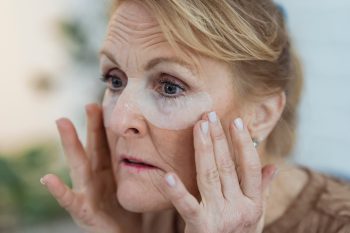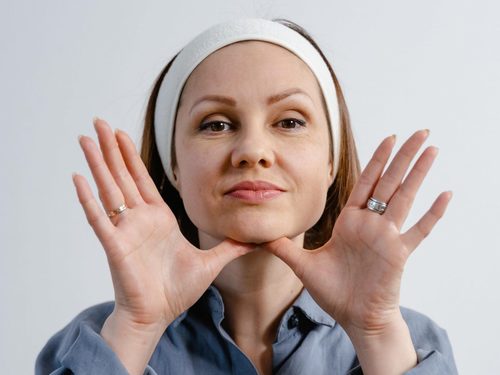In light of World Menopause Day on18 October 2023, research undertaken and shared by global skincare brand Environ has found that despite experiencing significant changes to skin during menopausal phases, 66% of women have not sought out professional skincare advice or treatments to assist with skin concerns.
ALSO SEE: Seven steps to managing menopause at work
A group of over 800 female respondents between the ages of 45 and 59 years old, were surveyed to expose the truths behind the physical effects of menopause on the skin.
The results revealed much about key skincare concerns, and that women experiencing this remarkable stage of life continue to carry the burden of societal stigma and miscommunication. Furthermore, that menopause is something that is quietly suffered alone, or over-medicalised and managed simply with hormone replacement therapy.
Globally acclaimed Plastic Surgeon and Environ Founder Dr Des Fernandes believes that many women don’t recognise the value in professional skincare and how it can help manage menopausal skin concerns.
Cosmetics cannot intercept or reverse intrinsic ageing, of course. The best option is to make sure that the skin cells are at their best by the time menopause is reached, and this can be achieved with cosmetic skincare science.
Skin cells are known to have receptors for oestrogen, progesterone, and other hormones which is an indication of the vital role these play in the healthy functioning of skin. It is the rapid decline of these hormones that results in the shut-down of hormone receptor systems in the skin, which ultimately leads to the “changes” experienced by women pre, during and post menopause.

Pexels
What menopausal skin struggles with
When asked what the most visible effects of perimenopause or menopause are on the skin, 51% of respondents in Environ’s consumer survey stated dry, itchy skin and over 34% cited wrinkles, sagging and loss of volume. One in five respondents suffered acne flare ups.
Skin is known to lose up to 30% of its collagen in the first 5 years of menopause.
How does this happen? The relative expression levels of oestrogen and progesterone start to decline from the perimenopausal years onward as women enter a predominantly deficient state. As oestrogen hormones decline, collagen production decreases, and the moisture components of the skin barrier function become impaired.
Dr Fernandes says:
“Oestrogen plays a role in stimulating the production of collagen and glycosaminoglycans such as Hyaluronic Acid. The decline of progesterone contributes to the deficiency of the skin’s natural oils and together, these compromised moisture components leave the skin susceptible to trans epidermal water loss.”

Pexels
How to combat menopausal skin concerns
Vitamin A is the most powerful promotor of collagen & natural moisturising factors.
Dr Fernandes maintains that the topical replenishment of vitamin A and antioxidants is the most effective starting point for women experiencing the effects of menopause on their skin.
“Without any doubt, the most important nutrient for beautiful skin before, during and after menopause is vitamin A. This essential skin nutrient controls the normalised activity of skin cells through its effects on cellular DNA, it promotes the healthy metabolism and differentiation of skin cells, and it’s also the most powerful promoter of the skin’s natural moisturising factors,” says Dr Fernandes
The appearance of skin contributes significantly to a self-confidence of women in menopause.
Perhaps the most emotionally stirring survey insight from the Environ Consumer Study is that when asked how respondents felt about the effects of menopause on their skin, only 13% cited a degree of acceptance. The overwhelming majority of the group used descriptors such as ‘sad’, ‘awful’, ‘embarrassed’ and frustrated. Some women even cited that they felt the need to ‘cover up’ and that their skin made them feel ‘unattractive’ and ‘depressed’.
“Menopause is inevitable for all women. It’s phase during which women experience significant physical, psychological, and aesthetic changes, along with the associated stressors, that can have a profound impact on their overall well-being,” says Dr Fernandes.
For more, follow Environ’s #MenopauseConversations on social media or watch Dr Des Fernandes Menopause Interviews on YouTube.
ALSO SEE:
7 surprising symptoms that indicate you may be hitting perimenopause
Feature Image: Pexels

